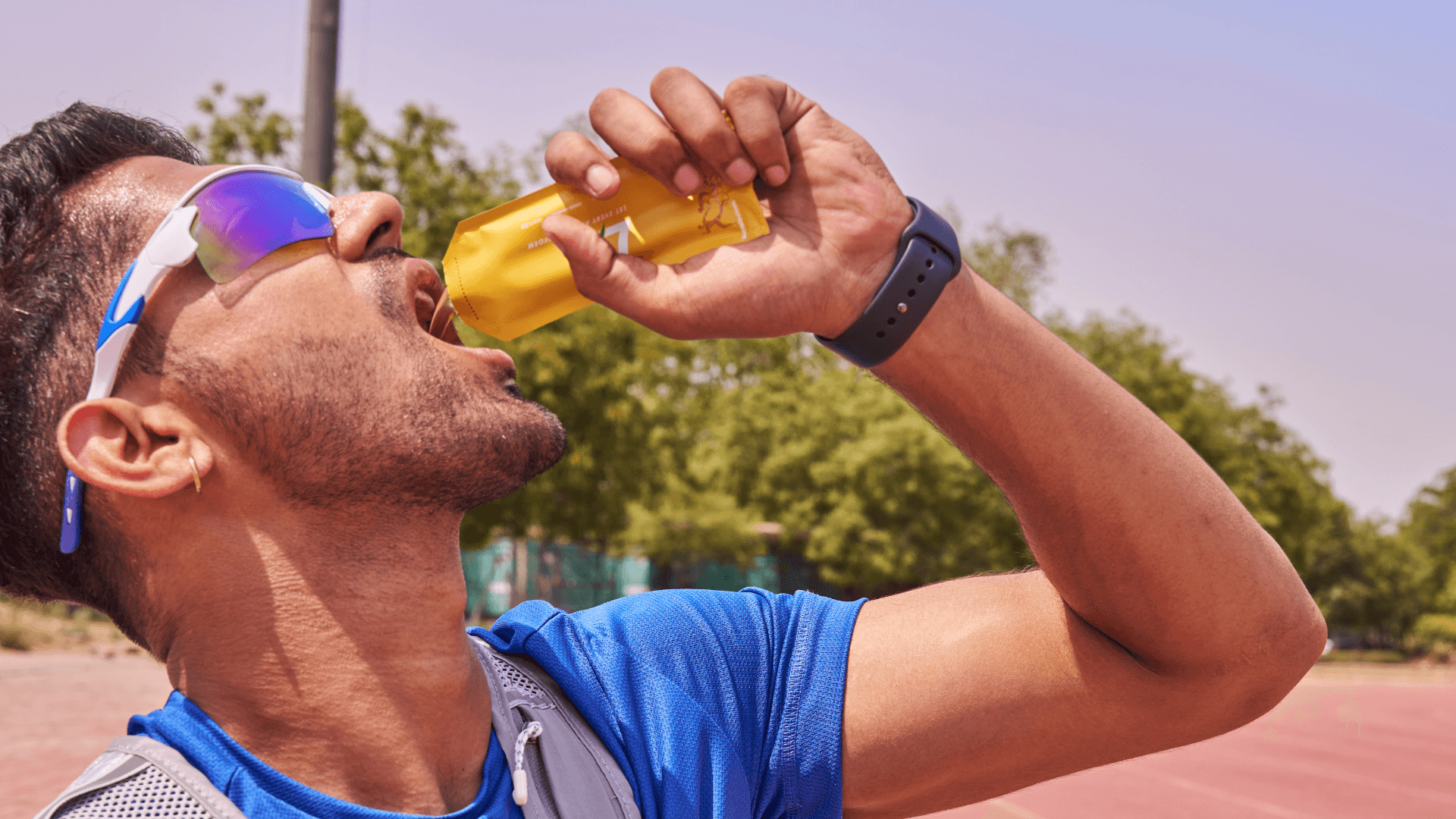Optimising Nutrition for Marathon Training & Recovery

Dawn Nunes
Advanced Practitioner Physiotherapist
- 24 October, 2024
- Running
- Diet & Nutrition
- 5 min read
Optimising Nutrition for Marathon Training & Recovery

You may have heard of training your body to run further or faster, maybe even training your brain for the mental challenges that runners can face. But have you ever heard of training your gut?
It’s a huge part of marathon or long-distance training but is all too frequently overlooked. Ensuring that you know what and when to eat can significantly improve your performance on race day, so it’s really important to train your gut in the weeks leading up to the race.
The Role of Nutrition in Marathon Training
Nutrition is the backbone of any successful marathon training programme. Nausea and “hitting the wall” are common conditions marathon runners experience which can be avoided through training your gut while you run. As an endurance athlete, your body demands a precise balance of nutrients to fuel long runs, facilitate recovery, and support overall health. Proper nutrition not only enhances performance but also reduces the risk of injury and accelerates recovery time. As you embark on your marathon journey, understanding the role of nutrition can make a significant difference in achieving your goals.
Incorporating a well-rounded diet with a focus on carbohydrates, proteins, and fats is essential. Carbohydrates provide the primary energy source for your muscles, while proteins are crucial for muscle repair and growth. Meanwhile, healthy fats contribute to sustained energy levels during longer runs. By integrating these nutrients into your daily meals, you can optimise your training results and maintain peak performance. Even more important, is to train with the foods that you want to use on race day just as you would do your run training, your gut equally needs to be trained.
Understanding Caloric Needs for Endurance Athletes
Endurance athletes require a higher caloric intake compared to the average person due to the increased energy demands of their training. Understanding your specific caloric needs is vital for maintaining energy levels and preventing fatigue. The number of calories you need depends on several factors, including your age, gender, weight, and the intensity and duration of your workouts.
To calculate your caloric needs, consider using the Harris-Benedict equation or other reliable metabolic calculators. These tools consider your basal metabolic rate (BMR) and activity level to estimate your daily caloric requirements. Once you know your baseline, you can adjust your intake based on your training schedule, ensuring you’re consuming enough to fuel your runs and recover effectively.
Although these tools are useful, even more important is to consider fatigue during and after your training, as well as your hunger – how your body feels. Learning to recognise how your body feels and adjusting will be optimal in being on top of your nutritional needs.
Strategies for Balancing Calories Burned with Calories Consumed
Balancing calories burned with calories consumed is a crucial aspect of marathon training. To achieve this balance, it’s important to monitor both your energy expenditure and dietary intake closely.
Start by tracking your workouts, documenting the distance, duration, and intensity of each session. This information will help you estimate the calories burned during training. A practical way to do this is using the perception of effort scale for your workouts which monitors how hard you found the session and to reflect on your sessions if you feel next time you should have had more water / fuel or if what you did was well balanced.
Simultaneously, keep a food diary to record your daily intake, focusing on portion sizes and nutrient content. Aim to replenish the calories burned during a run with nutrient-rich foods that support recovery and performance. Consider eating small, frequent meals throughout the day to maintain energy levels and prevent overeating. Listening to your body’s hunger cues can also guide you in managing calorie intake effectively.
The Impact of Proper Hydration on Recovery
Hydration plays a vital role in both performance and recovery during marathon training. Adequate fluid intake supports cardiovascular function, regulates body temperature, and aids in nutrient transport to your muscles. Dehydration, on the other hand, can lead to decreased performance, increased fatigue, and a longer recovery period.
It is also important not to overhydrate as this can increase your risk of developing hypernatremia which is even more serious. A way to do so is by drinking when you’re thirsty, ensuring it is regular and often, making sure not to wait until you are very thirsty.
To ensure proper hydration, aim to drink water consistently throughout the day, not just during workouts. Consider carrying a water bottle with you to remind yourself to sip regularly. During longer runs, incorporate electrolyte-rich sports drinks to replace lost minerals and maintain fluid balance. Two days before a big race consider drinking additional 1-2 litres of electrolytes so that when you start your race you will already be adequately hydrated. Monitoring the colour of your urine can also be a useful indicator of your hydration status—aim for a light, pale yellow colour.
Choosing the Right Foods for Optimal Performance
Selecting the right foods is essential for optimising performance and recovery in marathon training. Focus on nutrient-dense options that provide a balance of macronutrients and micronutrients. Prioritise whole grains, lean proteins, healthy fats, and plenty of fruits and vegetables to meet your dietary needs.
Before a run, consume easily digestible carbohydrates to provide quick energy. Any run over 90 minutes will need fuelling before and during to maintain optimal energy levels. Fuel can also be consumed via liquid carbohydrates especially in the latter stages of the race when it is harder to digest solids.
Post-run, focus on a combination of carbohydrates and proteins to replenish glycogen stores and promote muscle repair. Foods like bananas, oatmeal, lean chicken, and quinoa are excellent choices. Additionally, don’t forget to include foods rich in antioxidants, such as berries and leafy greens, to combat oxidative stress from intense training.
Common Nutritional Pitfalls to Avoid During Training
Even with the best intentions, marathon runners can fall into several nutritional pitfalls that hinder their progress. One common mistake is underestimating the importance of recovery nutrition. Skipping post-run meals or snacks can delay muscle repair and lead to increased fatigue. Being prepared with a basic whey protein shake or chocolate milk within half an hour of the race will boost your recovery.
Another pitfall is relying too heavily on processed foods or supplements instead of whole, natural options. While energy bars and gels can be convenient during runs, they should be consumed alongside your more natural options. Strive for mixture of the two during your runs to ensure you’re receiving a wide range of nutrients.
Finally, avoid drastic changes in your diet close to race day. Introducing unfamiliar foods can upset your stomach and impact your performance. Instead, stick to the foods your body is accustomed to and experiment with new options during training rather than before the big event.
So remember, as you train for your running, train your gut to take on food. When we run blood goes to where it is needed which is our legs, not our digestive system, which makes fuelling that much harder. However, by training our gut, it gets used to taking on food while training which then means sustained energy levels, better conditioning and less likely to fatigue.
By understanding the importance of balancing calorie intake with calories burned, and by making informed nutritional choices, you can enhance your marathon training experience, leading to improved performance and faster recovery times. Embrace these strategies and watch as your marathon journey becomes not just a challenge, but a rewarding and successful endeavour.

Advice
Over the last 20+ years our experts have helped more than 100,000 patients, but we don’t stop there. We also like to share our knowledge and insight to help people lead healthier lives, and here you will find our extensive library of advice on a variety of topics to help you do the same.
OUR ADVICE HUBS See all Advice Hubs

